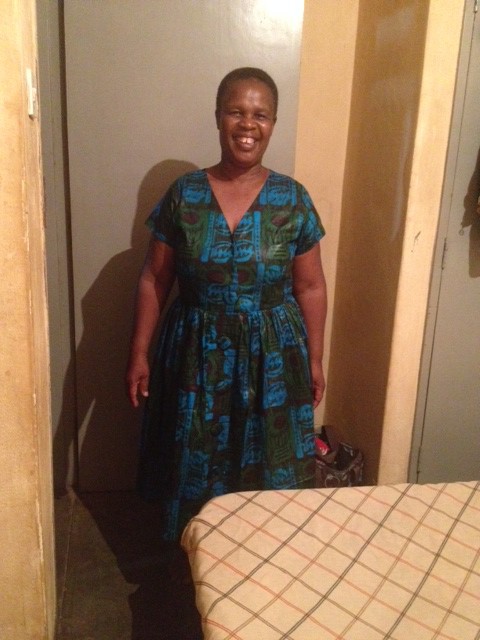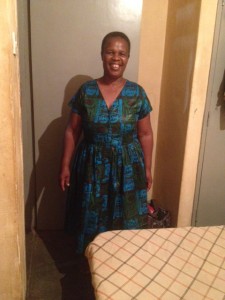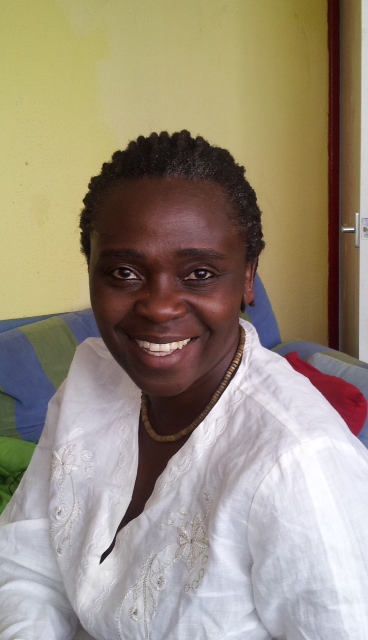MD: How did you come up with the poem, ‘Patching His Patches’ ?
During my first year at university, my Lecturer in Oral Literature, Professor Steve Chimombo, gave us an assignment to research on Oral Literature. He told us to search for folktales, songs performed by women as they pound maize, funeral and wedding songs, and just about any other songs we could find.
So when I went home, I searched for songs. Some of the songs I found were indeed those women sing as they pound maize. One of them was the one translated as ‘patching his patches. But it’s derived from a Chichewa song, which is as follows:
Iwe Mwali
Amuna ako ali kwani eh?
Ali m’nyumbamo asoka zigamba.
Iwe Mwali
Amunako ali kwani eh?
Ali m’nyumbamo asoka zigamba.
Uwauze asoke
Akati nduu!
Azungulira kuchulu kopulula zigamba
Chikwaiti cha akazawo ayesa mulingo
Olingira zigamba.
We would pound to the rhythm of the song, I should say, rather, that that’s what women do when pounding. This was at a time when there were no maize mills. So singing made pounding seem less onerous. People would forget just how difficult pounding was and focus on the song.
So could we say that the man is being mocked in this case?
Hmm, I would say that the focus is more on his poverty. He is constantly sewing rags…patching. Actually, the one who is being mocked is Mwali, that her husband’s job is to patch patches. The idea is that there are so many other jobs that Mwali could have done, and these include weaving baskets, mats, hoeing, but all he likes is to patch rags, which shows just how much poverty has become a part of the home. So maybe Mwali needs to do something about this.
You also wrote Chili Ndekha Mwanawe. Is that a song, too?
No. Chili ndekha mwanawe is about my thoughts, my feelings. It was written after my mother had left me in order to go to Zambia with my father. They took my siblings. I was left with my four brothers, all younger than me.
So I missed my mother very much, and I kept feeling, ahh…so much was going on in my mind because of that state of being alone, I would describe that state as ‘undekha.’ I kept feeling that I had been left alone, ndatsala ndekha. Even though I had been left with my grandmother, my grandmother could not take my mother’s place.
I wrote other poems, some were published, others weren’t. There are two in the anthology Akoma Akagonera[Dzuka: 1981].
I also wrote a book entitled I will eat tomorrow. It’s funny…I wrote the book in English, but I was thinking about the story in Chichewa. It’s about a girl who grew up in the village. This girl was the first born in the family. Village life decreed that a girl should learn how to work and that the best teacher was, actually, work itself.
So this girl’s mother gives her chores, tells her to wash dishes, cook, go to the maize mill, pound, look after her siblings. But this girl, Nambewe, also wants to go and play with her friends.
Nambewe wants to go and play because she sees her friends playing. And she feels really bad that she cannot go and join games such as going up the hill and then sliding, racing, swimming in the dam…because of this, she sometimes runs away from home, saying, “Today I simply have to play.”
So it would come to pass that whenever she ran away and didn’t do the chores, she would not eat any nsima. She knew that her mother would not give her nsima because she hadn’t done any work. So she would say to herself, “I would rather eat tomorrow. Today I will play.”
But even if she runs away from household chores, it’s not all play and no work for Nambewe. The story follows her as she excels in school from primary school, secondary school and all the way to university. Her aim was to one day escape from the village, and she used to think of two ways in which to do this; get a job from the Indians, or go to secondary school. She actually told her mother about that she would leave the village, and about her two options. And you see, Nambe would actually climb up the hill in her village, taking a good view of the road which led to the city.
I Will Eat Tomorrow won the second position in the British Council Book Competition of 1995. I received my first ever K6,000. That was a lot of money in those days.
What do you think inspired you to write?
I think it had a lot to do with my background. When I was young, my grandmother used to love telling stories. I was very close to my grandmother. In Nyanja culture, the first granddaughter had to stay with her grandmother. I was the first granddaughter, so she used to tell me stories every evening. Oh, I had quite a collection of stories.
I knew stories about Kalulu the Hare, about different birds, but all these were stories with a moral behind them.
So why don’t you write these days?
There are several reasons. First, it wasn’t easy to get one’s stories published. So you would write your stories and just heap them somewhere; no-one cared.
Secondly, I have a very demanding job as the Head of a double-shift secondary school. I start at half-If you were asked to advise girls as far as writing is concerned, what would you say?past seven and knock off at four-thirty. By the time I’m going home I am exhausted. I just don’t have the time anymore.
If you were asked to advise girls as far as writing is concerned, what would you say?
It’s a good idea for women to write, especially now, when a lot of organisations are encouraging girls’ education. Writing is one way of encouraging girls’ education. I believe that if a girl wrote a novel or short story, the reception would be quite good, and that other girls would learn from it, because up to now, girls’ literacy levels are still very low.
Why do you think a lot of girls don’t write?
A lot of girls don’t write, not because they can’t, but because they do not have people to encourage them. A girl’s education is the responsibility of not only the girl herself, but parents as well. Mothers should encourage their daughters to write by telling them stories, and by telling them what other women have done.
My grandmother used to encourage me a lot, maybe even more than my mother did. My mother was a very quiet person. My grandmother was not a quiet person, we got along because neither of us was very quiet. And sometimes what my grandmother would do was to call me by the names of characters in a particular story that she had told me. Fortunately, she liked telling me about good characters in folk tales. So I liked that. For instance, there were times when she would call me Kanjipiti. Kanjipiti is a small, intelligent person. So I felt good.
I also feel that the church has a role to play in encouraging girls. There was a church elder who used to encourage me; he would ask me to read the Bible in church, or to teach my friends.
In addition, it would be good to have reading clubs in the villages. Such clubs would encourage girls and boys to read more.
The reason I’m talking about these different spaces is because an ideal situation would be one where a girl hears about the importance of books everywhere she goes, not just at school. So everyone has a responsibility.




